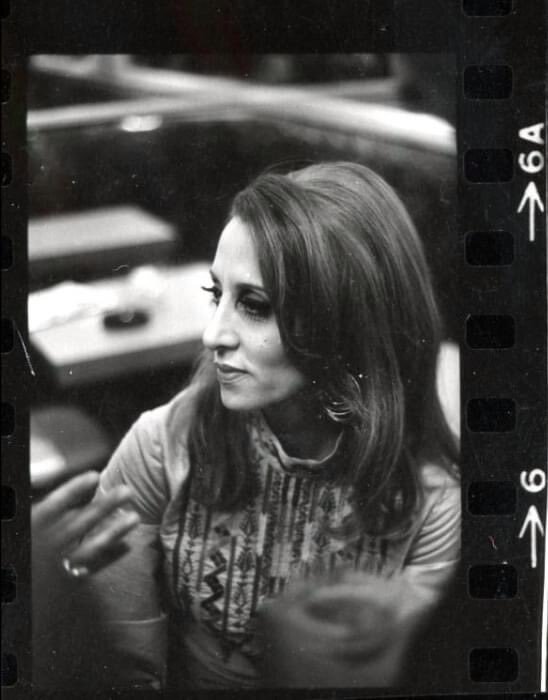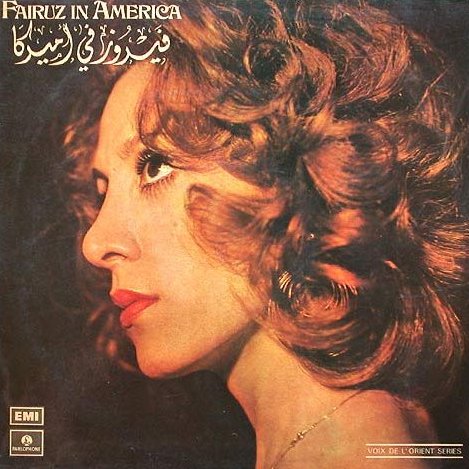
Be Sure to Wear Flowers in Your Hair
Published on Jan 19, 2026
WALK OUT TO WINTER: falling in love with—and to—Aztec Camera's High Land, Hard Rain
Published on Dec 26, 2025
First Anniversary
Published on Dec 17, 2025
Introducing: The IHTOV Zine
Published on Dec 15, 2025
More Liner Notes…
Featured Essay: Fairuz in America
by Rami Soudah

On June 19, 2019, my grandfather passed away at the age of 82 in Amman, Jordan. I was shaken awake by my mom at 5 in the morning, my eyes straining against the early morning light coming through my bedroom shutters as I saw her, sitting on the corner of the bed. Without my glasses and in my groggy state, I saw her face like a red tumor as she told me through sobs that Sido is dead, and that she and my uncle were booking flights to Jordan today. None of us could go with her as a same-day ticket for a 14-hour flight amounted to $2000+, an outrageous price tag in the pre-Covid era for a family that was buying flight tickets on credit cards. I told her it was fine, it was too late for any of us to take the time off work anyway.
Friday morning, I woke up to a phone call from my mom at 7 in the morning in our time, and it was around 3 in the afternoon in Jordan. I knew that they were heading out for the last day of the funeral. I gave my condolences to my grandma, my uncles, and my aunt. I recalled the dream I was having in which I was 8 years old again, sitting on Sido’s lap as we laughed at something really funny that one of us had said. For the life of me, I couldn’t remember what was so funny, but we couldn’t stop laughing, until that phone call broke through the laughter and Sido’s face transformed into my bedroom ceiling. My aunt told me through tears that he was saying goodbye to me. I hung up, and after a moment in this silence, I broke down in tears for the first time since Wednesday. I felt that my connection to my home and background was gone. Though I had always felt lonely since I came to Canada, I now felt alone and cut off, floating in the void.
Fast forward to a year later, and I’m alone in the room I was renting from a nice old lady called Linda. Shuffling through Spotify, I decided to listen to Fairouz. On the anniversary of Sido’s death, I had resolved to feel less alone and foster my own connection with my Arab background, something I had never really felt inclined to up until this point. Fairouz is a known name to anyone who speaks Arabic, as a legendary singer from Lebanon who had been active since 1950, she graced many generations with her voice and her music, and as an Arab Christian family, we held a special appreciation for her as all of our Arabic Christmas jingles were sung by her, and she was almost a part of our family every Christmas gathering.

I gave her songs a few listens. As someone inclined towards classical music, I expected to like them, but didn’t realize that they would have a visceral impact on me. I uncovered an obscure album of her music from 1955 that had songs neither I nor anyone I talked to had heard of before, the series was called Nawader (Arabic for “Rarities”) on Spotify, and it’s still a mystery to me and to a few of my researcher colleagues as to how those songs made it to Spotify. I fell in love with this young amateur singer who had such a bright future ahead of her, and I wondered if she knew how many hearts she would capture. I fell in love with the mystery of those early days that so many people ignore in favor of the idolized, perfected form she had transformed into in the 1960’s and 1970’s. I wanted to see the flawed, untrained, human girl that was learning how to sing on the radio, who had such intense stage fright that she would mix up words and forget them, often leading to huge shouting matches with her composer friend and future husband, Assi Rahbani.
As it sat at that time, my record collection was a few hand-me-downs from my mom, Wham!, George Michael, Madonna, and Diana Ross, and a Donna Summer record I had bought on impulse from Etsy. As I listened to more of Fairouz, and began to expand to listen to more Arabic singers, such as my dad’s beloved Oum Kalthoum. I decided to expand my collection in that way, and discovered Discogs, which had a plethora of sellers from all over the world finding obscure Arabic records (whose true value they had no idea about), and selling them for absurd prices online. I wanted my first experiment with this website to be a Fairouz record, but which one? She has had so many eras, so many good songs, and too many albums. I decided on a compilation album, and while looking at the tracklists, came upon Fairuz in America, 1971.
The tracklist of this album is nothing short of iconic, featuring her greatest hits 20 years into her career. Nassam Alayna Elhawa (The Breeze Blew Through Us, 1968), was singularly her most famous hit, especially with the Arab diaspora as the final line of the chorus said “O winds, please take me to my lands.” The rest of the tracklist is similarly iconic songs, from Habbaytak Bissayf (I Loved You in the Summer, 1973), and Bent El Shalabeya (The Girl from Seville, 1956, a folkloric song popularized by Fairouz). I bought the record, proudly displayed it to my parents and we listened to it together as they reminisced and I indulged.
Looking at the album cover now reminds me of this entire cathartic experience that led me here. Now, I am an Arabic music historian, having earned my Master’s degree and I’m set to begin my PhD on the same topics of Fairouz and her early repertoire. I have met many talented Arabic musicians from all over Canada who have had similar experiences with loss, loneliness, and disconnection, who have also picked up music as a way to stay connected with their culture, who have such a deep love for the culture that has brought them joy in their darkest times that they wished to share it with the world. I felt the same way, which is how I came to write this piece.
If I can provide a piece of advice to any reader here: take the chance and find a music venue close to you, listen to the local artists that desperately want to be heard and desperately want to share their treasures with you. Be it their own music, or music from their families and their lands.
Rami Soudah is a historian and writer based in Toronto, Canada. His work primarily focuses on the history of modern Arabic music, but as far as tangents go, Rami will happily pursue any topic that attracts his interest. You can find his portfolio at: https://seasidestranger.wordpress.com/portfolio.
I Have That on Vinyl is a reader supported publication. If you enjoy what’s going on here please consider donating to the site’s writer fund: venmo // paypal

